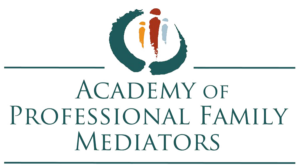Divorce can be a complicated process, especially when it comes to dividing assets and addressing debts and liabilities. For many couples, financial issues can become a major source of conflict during a divorce. Fortunately, mediation offers a constructive approach to resolving these financial matters. At Resolvium, we specialize in guiding couples through the mediation process, helping them find equitable solutions. In this blog, we’ll explore how mediation can help with debts and liabilities, particularly in the context of how to get a divorce in Arlington Heights and court-ordered mediation divorce in Lake in the Hills.
Understanding Debts and Liabilities in Divorce
When a couple decides to divorce, all shared financial obligations must be addressed. This includes not only the division of assets but also the distribution of debts, such as mortgages, credit card balances, and personal loans. Understanding the full scope of these financial responsibilities is crucial for an equitable settlement.
The Benefits of Mediation in Financial Disputes
1. Collaborative Problem-Solving: Mediation provides a platform for open communication, allowing both parties to discuss their financial concerns collaboratively. Instead of approaching the situation adversarially, couples can work together to understand each other’s perspectives, fostering a more amicable atmosphere.
2. Customized Solutions: In court, a judge may not have the time or flexibility to consider the unique aspects of your financial situation. In mediation, you can create customized agreements that address specific debts and liabilities in a way that suits both parties. This is particularly important when considering ongoing financial commitments.
3. Reduced Stress and Conflict: The divorce process can be emotionally taxing. Mediation helps minimize the stress associated with traditional divorce proceedings. By working with a trained mediator, couples can focus on finding solutions rather than engaging in contentious disputes that can escalate conflicts.
4. Cost-Effective Approach: Mediation can save both time and money compared to a litigated divorce. By resolving financial issues amicably, couples can avoid lengthy court battles and associated fees. This is especially beneficial when considering how to get a divorce in Arlington Heights, where mediation can expedite the process.
The Mediation Process for Debts and Liabilities
- Initial Assessment: During the initial mediation sessions, both parties will outline their debts and liabilities. This may involve sharing financial documents to provide a clear picture of the couple’s overall financial situation.
- Discussion and Negotiation: With the help of a mediator, couples can discuss their debts and negotiate how to divide them fairly. This may involve considering each party’s financial situation, future income potential, and any special circumstances.
- Creating a Formal Agreement: Once an agreement is reached, the mediator will help draft a formal settlement that outlines the division of debts and liabilities. This document can then be submitted to the court for approval, particularly important in cases involving court-ordered mediation divorce in Lake in the Hills.
- Finalization: After the court reviews and approves the agreement, both parties can proceed with their divorce, equipped with a clear understanding of their financial responsibilities moving forward.
Mediation plays a vital role in resolving debts and liabilities during divorce, providing a collaborative and efficient approach to navigating financial challenges. By choosing mediation, couples can work towards equitable solutions that take into account their unique circumstances, reducing conflict and fostering cooperation.
If you’re looking to understand how to get a divorce in Arlington Heights or are facing court-ordered mediation divorce in Lake in the Hills, Resolvium is here to help. Our experienced mediators will guide you through the process, ensuring that your financial matters are handled with care and understanding. Contact us today to learn more about how we can assist you on your journey to resolution.
Disclaimer: Resolvium Divorce Mediation does not provide legal or financial advice and cannot provide legal representation. Parties should seek or consult with appropriate legal counsel if they believe they need legal advice.










